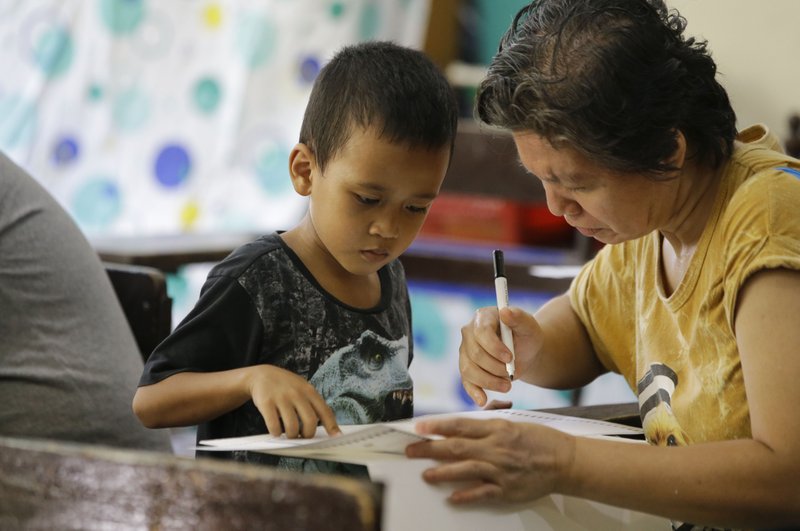MANILA, Philippines -- Filipinos voted Monday in midterm elections highlighted by a showdown between President Rodrigo Duterte's allies, who aim to dominate the Senate, and opposition candidates fighting for checks and balances under a leader they regard as a looming dictator.
Nearly 62 million Filipinos had registered to vote. About 43,500 candidates were vying for about 18,000 congressional and local posts, including the seats of 81 governors, 1,634 mayors and more than 13,500 city and town councilors in 81 provinces.
Final results are expected to be declared in at least a week for national posts and a few days for local positions.
Many see the elections as a referendum on Duterte's rise to power. Critics note his crackdown on illegal drugs that has left thousands dead, his unorthodox leadership style, his combative outbursts and his contentious embrace of China.
"President Duterte's name is not on the ballot, but this is very much a referendum on his three years of very disruptive yet very popular presidency," Manila-based analyst Richard Heydarian said.
Duterte cast his vote at a school in his hometown, Davao city. He told reporters that he was ready to step down if all of his candidates lost.
Asked about his three children, who are running in the elections, Duterte said he wished they would abandon politics. He warned his daughter, Sara, who is running for re-election as Davao city mayor and has been seen as a possible successor to him, that the presidency "will just destroy you."
The most crucial races are for 12 seats in the 24-member Senate, which Duterte wants to fill with allies to bolster his legislative agenda. That includes reinstating the death penalty; lowering the age for criminal liability of child offenders; and revising the country's 1987 constitution primarily to allow a shift to a federal form of government, a proposal that some critics fear may be a cover for removing term limits.
Military and police forces were on full alert to respond to any violence and to help prevent cheating.
Two explosions were reported in southern Maguindanao province, including one grenade blast shortly before voting started at 6 a.m. That incident caused no injuries. In Lanao del Sur province, also in the south, three men in a parked van were arrested after they tried to hurl a grenade at soldiers guarding a voting center in Marantao town. The grenade hit the van's window and exploded inside, wounding one of the three suspects, who also possessed a homemade bomb, army Col. Romeo Brawner said.
Despite pockets of violence, Elections Commission spokesman James Jimenez said the campaign was relatively peaceful compared with past years. Police said 20 people had died in poll-related violence.
At least two mayoral candidates were put in police custody, but one was later freed and allowed to vote. In two southern provinces, gunfire wounded several people, police said.
Opposition aspirants consider the Senate to be the last bastion of checks and balances given the dominance of Duterte's loyalists in the House of Representatives.
Last year, opposition senators moved to block proposed legislation that they feared would undermine civil liberties.
Duterte's politics and key programs, including his drive against illegal drugs that has left more than 5,200 suspects dead, have been scrutinized on the campaign trail and defended by close allies running for the Senate.
Aside from the drug killings, Duterte has drawn protests and criticism over his gutter language and what nationalists see as a policy of appeasement toward China that may undermine Philippine territorial claims in the South China Sea.
Information for this article was contributed by Bullit Marquez, Joeal Calupitan and Aaron Favila of The Associated Press.
A Section on 05/14/2019
